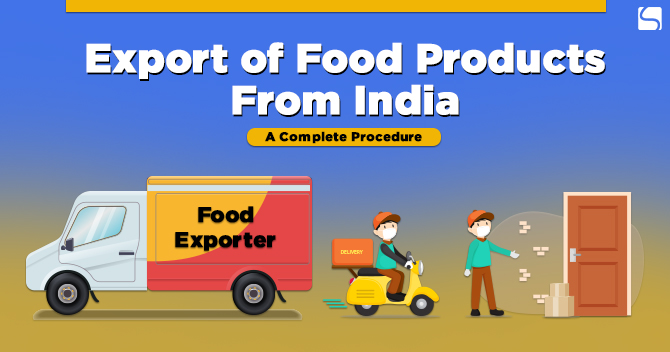Enforcement of FSS Act and its impact on Food industry

Dashmeet Kaur | Updated: Mar 14, 2020 | Category: FSSAI
Food contamination is growing at a rapid pace in India and that urges consumers to be more vigilant. Several cases of tainted food are reported daily; be it dairy products or green vegetables, nothing is pure in today’s world. An excessive inclusion of harmful preservatives and additives in food products can be hazardous for public health. The added chemicals not only deteriorate the quality of food but also immensely affect human metabolism. Government has initiated enforcement of FSS Act considering the adverse condition of Food sector. The pivotal objective of Food Safety and Standards Act is to monitor the end to end process of food manufacturing to packaging and consumption. This write-up will provide a complete knowledge of FSS Act and infuse about the importance of FSSAI License.
Table of Contents
An overview of FSS Act
Food Safety and Standards (FSS) Act was enacted in 2006 to consolidate the legal regulations for Food industry. Therefore, FSS Act set a regulatory body called Food Safety and Standards Authority of India (FSSAI). The function of FSSAI is to lay down certain standards for food articles and oversee their manufacture, distribution, sale, storage, import and export. It ensures the availability of wholesome and safe food for human consumption.
Ministry of Health and Family Welfare along with Government of India has enforced FSS Act for the progression of Food sector. Food Safety and Standards Act has revolutionized the safety standards and manufacturing processes of food in the nation. As per FSS Act, all food business operators like distributors, importers, hotels, manufacturers, wholesalers, eateries, restaurants, retailers, distributors must have FFSAI License.
Operations under Food Safety and Standards Act
The primary focus behind the enforcement of FSS Act was to maintain food Licensing and Registration procedure. It is this Act that also keeps track of labeling & packaging of food articles. FSSAI prohibits the sale of those products that do not pass the laboratory test based on sample analysis. Here are the chief operations performed under FSS Act:
- FSSAI provides a legal Certification to the standard food processing businesses.
- The Authority ensures the quality of food by appointing proficient food analysts in the laboratories to examine the samples.
- FSS Act spreads awareness about food safety and standards among consumers.
- Food Safety and Standards Authority of India assures that all food business operations are complying with FSS Act, 2006.
- FSSAI sets different standards for multiple food products.
What is the need for the enforcement of FSS Act?
Food sector is one of the most dynamic fields of the Indian economy. There is a constant evolution of food standards due to the advancements in food consumption patterns, science, preservatives, additives that gives rise to new risks.
Several Regulatory bodies and Acts drove food safety before 2006. The main shortfall was a lack of or uniformity and standardization among those bodies. Therefore, it becomes imperative to bring all the Regulatory Authorities under one roof and make a single food security body to effective regulation.
Besides, numerous departments were responsible for efficient administration that created troublesome situations. It incurred the need for a single reference point in regards to the enforcement of Food Safety Standards.
The new FSS Act 2006 was established with the amalgamation of seven older Acts. It becomes a game-changer as it integrates international food standards.
With the emergence of the new FSS Act, all food business operators are required to procure FSSAI License. Moreover, the existing operators also have to re-register under the new Food Safety Standards, 2006 that were earlier licensed with the previous food laws.
Food Business Operators that must obtain FSSAI License
According to the latest regulations of FSS Act, any individual who runs a food business must acquire 14 digits FSSAI License number. The Authority has segregated Food License into three parts depending upon the scale of operations such as:
- FSSAI Central License– A food business which has a turnover of more than INR 20 crore per annum needs to attain Central License. The food business operators that want to trade globally are also required to apply for this License. A Central License remains valid for at least 1 year to the maximum period of 5 years and its Registration fee is INR 7500 per year.
- FSSAI State License– A food business with a turnover of more than INR 12 lakh per year but less than INR 20 crore should go for State License. Such License is mainly for the restaurants/food entities which carry out operations in a single state only. The validity of a State License is 1 year to 5 years with an annual fee of INR 2000 to 5000.
- FSSAI Basic Registration- Small food business operators that make a yearly turnover of less than INR 12 lakh only must register under basic FSSAI. The validity of a Basic License is also 1 to 5 years, yet its Registration fee is cheapest, i.e. INR 100 per year.
Penalties for Non-Compliance of FSS Act, 2006
Following are the hefty penalties levied on the food business operators for not adhering to FSS Act:
- Penalty for selling substandard food- In case aperson sells an inferior quality food which has been imported or produced by him, then he will be a penalized with INR 5 lakh.
- Penalty for misleading customers with false advertisement- If a food outlet is found guilty of promoting false advertisements just to attract customers, it will be subject to pay the penalty up to INR 10 lakh.
- Penalty for food with extraneous matter- A food business operator who stores or sells any food article that contains extraneous matter shall be levied a penalty of about INR 1 lakh.
- Penalty for not complying with Food Safety Officer- If a food operator fails to abide the orders of Food Safety Officer or do not comply with the provisions of FSS Act, then a penalty of INR 2 lakh shall be imposed on him. In such a case, the only exemption is to provide a valid reason for non-compliance.
- Penalty for unhygienic or unsanitary processing of food– Any person involved in food processing or manufacturing must maintain hygienic or sanitary conditions. A failure to do shall impose a penalty of INR 1 lakh.
Conclusion
For FSSAI Registration and Renewal, consult Swarit Advisors.














